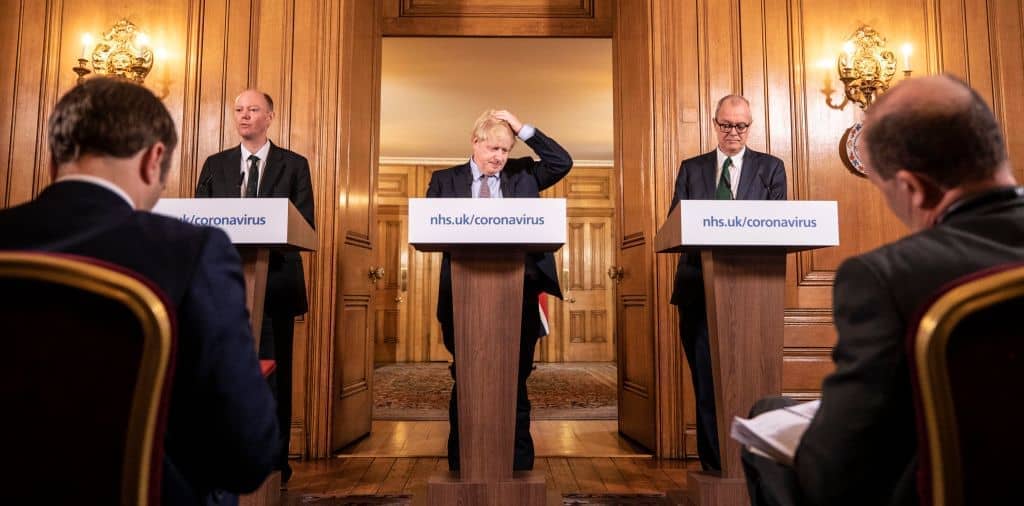Rishi Sunak’s interview in last week’s magazine has inspired a lot of comment. Two this week: Lee Cain, ex-No. 10 spin chief, in The Spectator and Robert Shrimsley in the Financial Times, warns about the promotion of betrayal ‘lockdown fables’ promoted by ‘mythmakers’ and ‘lockdown sceptics trying to rewrite history’. He and I discussed this on Twitter yesterday. I’m a big admirer of Shrimsley and think he deserves a more considered response than whatever can be squeezed into 280 characters.
Cain:
‘Opponents still say lockdown was a mistake. What do these critics think would have happened to transmission rates – rising exponentially – if we had failed to lockdown? What would they have done instead? Mr Sunak says he’d have had ‘a grown up conversation with the public.’ But what does this mean in policy terms? Do lockdown sceptics believe people would have voluntarily stayed at home and avoided social contacts, as in Sweden, so restrictions were not needed?’
Shrimsley:
‘More dishonest is to discount the deaths that would have come both from failing to lock down and the consequent overwhelming of the NHS. How many deaths would have been acceptable and what level of chaos in hospitals tolerable? On this, funnily enough, there is no answer.’
To their points:
1. What would have happened to Covid transmission rates if we had failed to lock down?
One answer: they were probably falling by then (so the R-number would have been below one) as per Prof Simon Wood’s study here. Is Wood a minority voice? Well, what about Chris Whitty – who himself has said, in light of what we now know, that Covid transmission rates were falling by lockdown. ‘Quite a lot changed that led to the R going below one well before, or to some extent before, March 23’ he has said. But more of this later.
2. Is it ‘ideological’ to investigate and discuss what happened in lockdown?
Shrimsley argues that:
‘Those fighting rearguard actions are doing so for many reasons, including their own sense of victimhood. But a part of the argument goes beyond defensible anger at government overreach into denial of the scale of the crisis and an ideological fight against those who see an active state as a force for good. Around all this is spun the meta-demand for a return to ‘proper’ small-state conservatism.’
It’s an interesting point – is this lockdown debate about lockdown really about something else? The Guardian takes this view as well, saying the questioning lockdown will “feed the paranoid politics of the Conservative right.: But it’s hard to see a left vs right divide here. Lockdown is seen by some on the left as a Tory authoritarianism. Oxford’s Carl Heneghan is no Tory, but his agenda is to promote evidence-based science and public health. I see this more from a journalistic perspective: our job is to question and scrutinise. And lockdown deserves the scrutiny. It inflicted more social and economic damage on Britain than any policy in peacetime history, the worst of it suffered by the poorest. It’s crucial, surely, now that we have a lot more data to ask: was it the right thing to do? What worked, what didn’t – and where’s the evidence? As Shrimsley says, there will soon be a public inquiry. But there’s an important role for journalistic inquiry, especially in an era where studies can be flagged and data hubs created to promote evidence-rich discussion.
Soon, there will be a new Covid variant (or a new pathogen) and the lockdown debate will resurface as it did with Omicron last December. So now is the time to debate, as calmly and with as much evidence as we can, whether lockdown worked for this kind of pathogen – or whether voluntary action, now measurable by smartphones, is enough. We may not have much time to discuss. This is not a matter of history, far less ideology. It’s about the future, what to do next time – and it’s a debate in which (I’d argue) we cannot wait for an inquiry. A debate in which journalism can play a role.
3. ‘It is concerning that so few ministers from the Covid crisis, Truss included, are prepared to take on the mythmakers.’
I agree with Shrimsley on this: if untruths or uncorroborated reports are being published in the press, they should be challenged. But the remedy to myths is not mockery, but evidence. For SpectatorTV last week we asked no end of ministers and MPs to come on the show and defend lockdown. No one would do so. This may reflect the weight of the ever-growing pile of evidence. But we at The Spectator actively seek out voices on every side of this debate: Lee Cain’s powerful letter was the longest I’ve published in my 13 years as editor.
4. ‘Do lockdown sceptics believe people would have voluntarily stayed at home and avoided social contacts, as in Sweden?
It’s often said that Brits would not be as civic-minded as Swedes, but that’s hard to reconcile with the Google Mobility data that suggests Brits were locking themselves down harder and faster (below). So to Cain’s question: yes, it seems plausible to me that Brits could (and did) lock themselves down as much as Swedes did. Which raises an important question: was the 23 March lockdown not needed because earlier measures were sufficient?
The next question – was Covid growing exponentially (i.e. the R-number above one) before lockdown? – is one of the most important as it was the founding assumption (I won’t call it a myth) of lockdown. But it’s an incendiary point that deserves a separate post, with a richer base of evidence than I have time to put together at the weekend. So I’ll return to that next week. Meanwhile, do keep the questions coming.







Comments